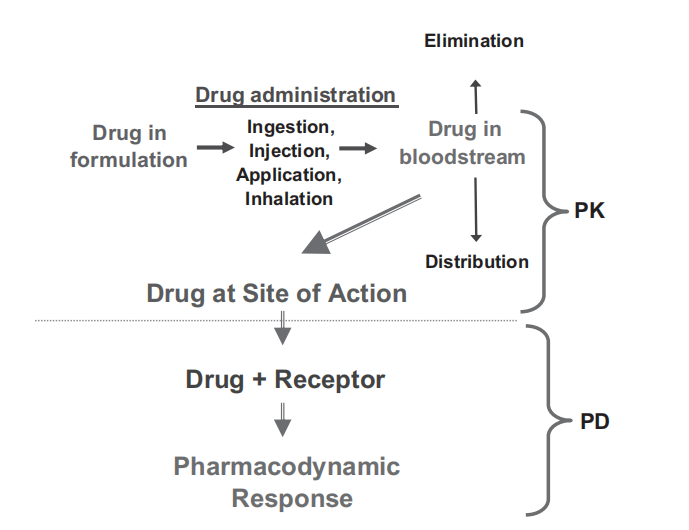 PK/PD Relationship Analysis
PK/PD Relationship AnalysisPharmacodynamics (PD) is the study of the reactions of biological organisms to compounds, i.e. the pharmacological effects of compounds on the body. Pharmacokinetics (PK), on the other hand, is the study of the dynamic distribution process of compounds in the biological organism, that is, the treatment process of compounds by the biological organism.
After entering the biological organism, drugs reach the target or off-target sites through distribution processes, but the relevant pharmacological activity cannot be immediately observed.Taking common kinase receptor inhibitors as an example, once a compound reaches the site of action, phosphorylated kinases can still activate signaling pathways. Only after these phosphorylated kinases are removed from the cell surface through ubiquitination systems or ligand mediated endocytosis, will the activity of newly expressed kinase receptors be inhibited by the arrived compound. This suppresses the activation of subsequent signaling pathways and ultimately leads to pharmacological activities such as cell apoptosis or growth arrest. Therefore, understanding the relationship between the concentration of compounds and their activity is crucial for selecting the dosage and frequency of compound administration.
When studying the PK/PD relationship of compounds, selecting appropriate PD biomarkers is crucial. In preclinical experiments, phosphorylation of the target itself or changes in key molecules downstream of its signaling pathway can be chosen as PD molecular markers. In addition, relevant molecules in plasma or skin can also be selected as surrogate PD molecular markers.
In preclinical PK-PD relationship analysis, PK is usually measured by analyzing the concentration of compounds in plasma and target tissues (such as tumors), and changes in PD molecular markers are analyzed through common cytological methods (such as WB, IF, ELISA, etc.).
At Truwaybio, clients can provide study protocols, and we can also work together with clients to design protocols.


Email: BD@truwaybio.com
Business: +86 185-0139-0702
Technology: +86 137-7300-5709
Website Usage Help: +86 188-6238-7270
Landline: +86 0512-80601059


Email: BD@truwaybio.com
Business: +86 185-0139-0702
Technology: +86 137-7300-5709
Website Usage Help: +86 188-6238-7270
Landline: +86 0512-80601059
